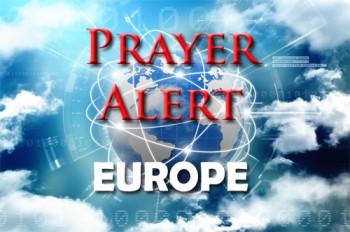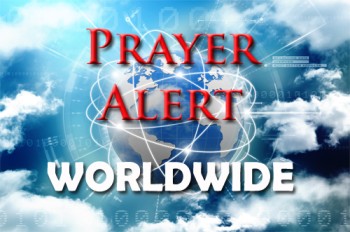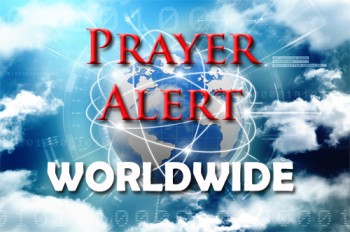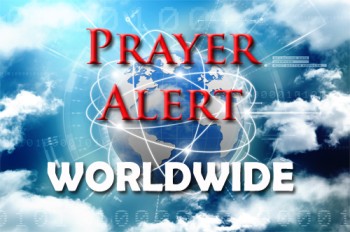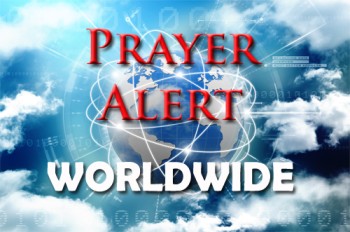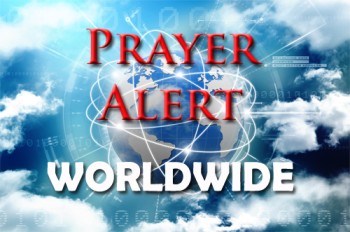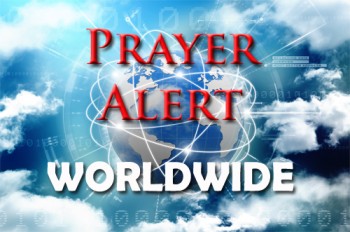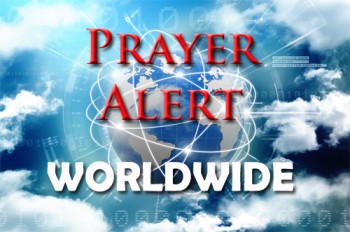Displaying items by tag: NagornoKarabakh
Nagorno-Karabakh: ICJ will hear cases from both sides
The International Court of Justice (ICJ) has confirmed that it has jurisdiction to hear cases filed by Armenia and Azerbaijan, two long-standing adversaries. The cases stem from the 2020 Nagorno-Karabakh conflict, with both nations accusing each other of violating the international convention on racial discrimination. Armenia accuses Azerbaijan of engaging in ‘ethnic cleansing’, while Azerbaijan claims Armenia has spread hate speech and racist propaganda. The ICJ had previously issued emergency orders to prevent the incitement of racial hatred and protect ethnic Armenians fleeing Nagorno-Karabakh after Azerbaijan’s military actions in 2023. While the court’s rulings are binding, it lacks enforcement power. The cases are still in the early stages, with the court narrowing the scope of certain claims and excluding others. The process could take years to resolve, as both nations await the next hearings and a final ruling on the merits of their claims.
Azerbaijan arrest as exodus tops 50,000
Azerbaijan has arrested former Nagorno-Karabakh leader Ruben Vardanyan as he attempted to flee into Armenia amidst a mass exodus of ethnic Armenians. Azerbaijan recently regained control of Karabakh in a rapid offensive, causing widespread displacement and a humanitarian crisis. The region, internationally recognised as part of Azerbaijan, has a predominantly ethnic Armenian population. Azerbaijan claims it wants peaceful reintegration and guarantees of civic rights, but faces accusations of ethnic cleansing as thousands of Armenians have fled in fear. The EU and Germany have expressed concern and called for international observers, and the UN has called for an investigation into alleged violations of the right to life. Vardanyan's arrest comes as Azerbaijan seeks to prosecute separatist leaders. The situation highlights Russia's diminished role as a security guarantor in the Caucasus region, with competing influences from Turkey, Iran, and the United States. As a result of the crisis, the current leader has said that the enclave will officially cease to exist with effect from 1 January 2024: see
Armenia: Nagorno-Karabakh blockade continues
Asmaryan eats potatoes for every meal. He lives with 120,000 other ethnic Armenians in Nagorno-Karabakh, an enclave in Azerbaijan in the South Caucasus. They are cut off from Armenia by the Azerbaijani blockade of the Lachin Corridor, the only road in or out of Nagorno-Karabakh. They are under siege, with little food, essential medicines, hygiene products, baby formula, or fuel. Residents believe Azerbaijan wants to starve them into submission so that if or when the road reopens, they leave. It is a slow-motion genocide, with hunger the weapon. Asmaryan said outsiders don’t care about Karabakh as they have no natural resources: ‘They talk about human rights but do nothing.’ However, the Archbishop of London’s Coptic Orthodox Church, the Primate of the Armenian Church of the UK, the Bishop of Southwark, and other church leaders have written an open letter to Rishi Sunak urging immediate action to open the Lachin Corridor and prevent genocide. Also, Armenians will demonstrate in Yerevan on 2 September to express unity with Nagorno-Karabakh.
Nagorno-Karabakh - prayer still needed
In January we prayed for the 120,000 Christians stranded in Nagorno-Karabakh, a landlocked enclave between Armenia and Azerbaijan, asking God to halt the obstructions to one of Christianity's oldest communities. The situation continues and requires immediate action. Currently, inhabitants of Nagorno-Karabakh cannot travel freely out of the region; 954 are still stranded on either side of the corridor. Only the Red Cross and Russian peacekeepers’ vehicles are allowed to travel along this corridor, which is clearly insufficient to fulfil the needs of the population. It is vitally important that goods can get through in time for the sowing season. Furthermore, the repeated disruption of gas and electricity supply to the territory has resulted in serious violations of the rights of the inhabitants: many have lost their jobs and children are deprived of education since schools had to close. Azerbaijani military positions are within Armenian sovereign territory, sometimes well beyond any disputed border.
Armenia: Christians face dire circumstances
‘There is no time to wait, this is genocide’, said Dr Sukhudyan, describing the situation in Nagorno-Karabakh, a landlocked enclave between Armenia and Azerbaijan. Deadly battles between Armenians and Azerbaijanis have previously raged there. Armenia is the world's first official Christian country, and 120,000 Christians live in the enclave. The road to it was protected by Russian peacekeepers, but on 12 December Azerbaijani protesters blocked it, preventing food, medicine, and other basic transport in or out. Now this ongoing dispute - in light of the past genocidal horrors - has human rights groups deeply concerned about what is to come. The minister of state for Nagorno-Karabakh said this is probably the prelude to an Azerbaijani armed attack, and if Russia does not step in, Armenia is not strong enough to stop them conquering the region. There will be massacres, with the oldest churches in the world possibly destroyed.
Armenia: the forgotten war victims
A group of Armenian organisations has appealed to the UN, warning about ethnic cleansing of the population of Nagorno-Karabakh by Azerbaijani Muslims. Their letter stated, ‘Two years have passed since the war against Nagorno-Karabakh started, but security issues are not resolved yet. Many fundamental rights are continually violated, plus significant and increasing risk of new conflicts and atrocities. Ethnic cleansing of native Armenians of Nagorno-Karabakh is especially alarming. The Azerbaijani government's extreme hatred and belligerent rhetoric, destruction of Armenian monuments, appropriation of cultural heritage, exceptional brutality by Azerbaijani armed forces, continuous threats of violence, and intimidation are characteristic of genocidal atrocities. The scenario of ethnic cleansing may become a reality if Azerbaijan’s crimes remain unaddressed and effective pressure is not put on Baku to refrain from violence.’ Armenian Christian families in villages across the enclave need prayer, hope, and practical help. If their pasturelands are not seized by armed forces, they are too dangerous to use because the military are so close. See
Azerbaijan: civilian POW faces terrorism charges
Armenian-Lebanese Vicken Euljekjian, a civilian prisoner of war captured when Azerbaijan invaded Nagorno-Karabakh and seized new territory, has been indicted on three counts: participation as a mercenary in a military conflict, committing terrorism, and illegally crossing into Azerbaijan. These charges are falsely leveled against Euljekjian. They are part of the joint attempt by Azerbaijan and Turkey to justify their genocidal actions in Nagorno-Karabakh. Azerbaijan invaded Nagorno-Karabakh in September 2020, with the support of Turkish-backed Syrian mercenaries. The brutality of the invasion demonstrated an intent of ethnic-religious cleansing towards Karabakh’s Armenian Christian community, whose presence in the region predates the Islamic Turkish presence.
Armenia: prime minister refuses to resign
Armenian prime minister Nikol Pashinyan has warned of an attempted military coup, after the country's armed forces said he and his cabinet must resign. The army ‘must obey the people and elected authorities’, he told thousands of supporters in the capital Yerevan. His opponents held a rival rally. The military's top brass was angered by the PM's sacking of a commander. Mr Pashinyan has faced protests after losing last year's bloody conflict with Azerbaijan over the disputed region of Nagorno-Karabakh - an enclave internationally recognised as part of Azerbaijan but controlled by ethnic Armenians since a 1994 truce. During the six weeks of fighting late in 2020, Azerbaijan not only recaptured areas around the enclave but also took the key town of Shusha inside it. Under the Russian-brokered deal that emerged shortly afterwards, Azerbaijan keeps the areas it has captured.
Nagorno–Karabakh: failed ceasefire and fake news
Fighting continues despite an agreed ceasefire; the Red Cross reports ‘hundreds killed’ in the conflict over Nagorno-Karabakh. Turkey and Israel are offering drone support and technologies. Azerbaijan wants to gain control of as much of its claimed territory as possible. Armenians have mobilised to stop it. The Red Cross reports indiscriminate shelling by both sides into towns and cities far from contested areas. On 21 October Russian bombers made a powerful air strike on a convoy and assembly point with Syrian mercenaries in Nagorno-Karabakh. However researchers found old video footage re-edited and wrongly labelled as portraying recent events. While the majority of online media is news reports, official government information or campaign slogans and images, there is doctored or old footage. Disinformation in conflicts is not uncommon, where accessing accurate information can prove difficult. Pray for peace in this part of the Caucasus: it’s a crisis entangling Russia, Turkey, Israel, Iran, and Azeri and Armenian diasporas.
Armenia/Azerbaijan: South Caucasus war?
The long-simmering conflict between Armenia and Azerbaijan over the Nagorno-Karabakh region erupted on 27 September, with over 100 confirmed deaths already in the fiercest fighting in years. Many are asking, ‘Will it escalate into an all-out war that threatens regional stability and drags in major outside players?’ https://www.bbc.co.uk/news/world-europe-54356336 For years, mainly Christian Armenia and Muslim-majority Azerbaijan have been at odds over the rugged Nagorno-Karabakh highlands. Between 1988 and 1994 the two sides fought a bloody war to control the enclave, which was part of Azerbaijan but mainly populated by ethnic Armenian Christians. The conflict resulted in over 30,000 dead, a million displaced, and a fragile truce that left Nagorno-Karabakh as a de facto independent state, recognised by Armenia but not by most other countries, including Azerbaijan. The recent violence sparked an uproar in Azerbaijan. Thousands took to the streets calling for the army to ‘recapture’ Nagorno-Karabakh.
